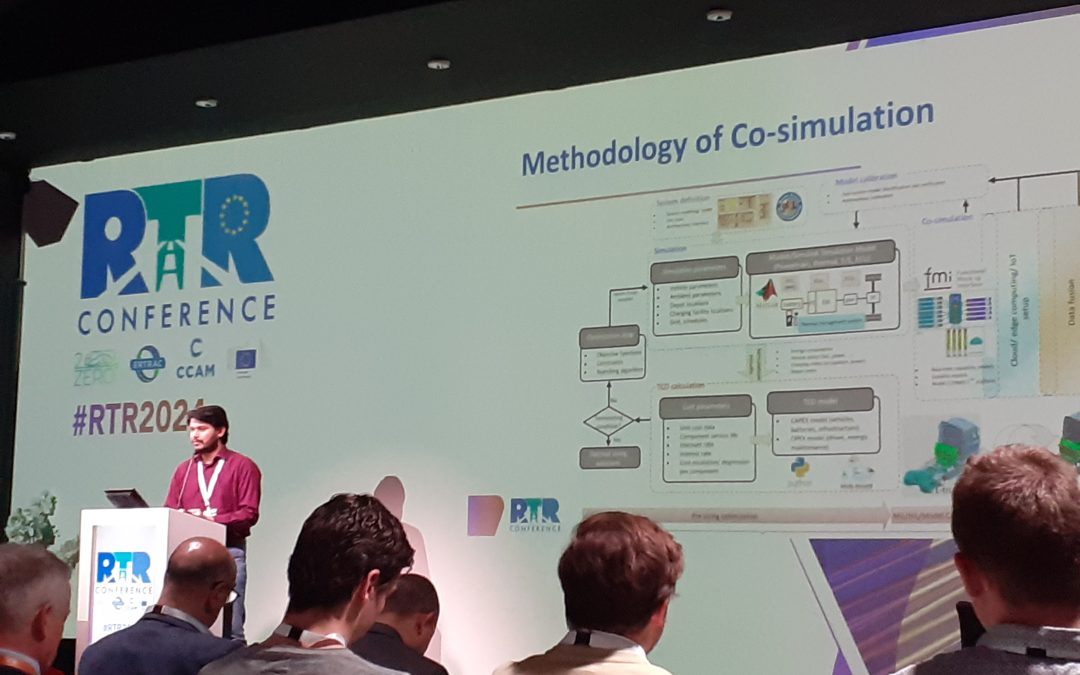The RTR Conference, happening right now in Brussels (5 to 7 February 2024), showcases the latest advancements in European road transport research. With over 70 projects presented, it explores themes like sustainability, safety, and automation, aiming to shape the future of mobility for a greener and more efficient transportation system. One of today’s morning sessions focused on “Medium and heavy-duty vehicle developments”. Moderated by Eric Cerneaz (CINEA) and Mats Rosenquist (Volvo Group), the session showcased key findings of the NextETRUCK project and the already finalised EU-funded project LONGRUN.
Subhajeet Rath, research scientist at TNO, NextETRUCK coordinator, presented an overview of the project, delving deeper into its digital twin and the associated digital toolsets. The digital twin mirrors a physical asset, like a truck, and comprises various components, such as the vehicle itself, its environment, and traffic conditions. Sensors collect attributes from these components, which are then transmitted to the cloud, where algorithms process the data in real time. Digital twins enable the computation of parameters vital for the performance of the physical asset. For instance, they can analyse energy consumption and charging times. Digital twins facilitate two-way communication between the physical and digital realms, unlike traditional models or digital shadows. NextETRUCK’s digital twin is developed in a multi-layered framework comprising physical assets, data collection, data interpretation, algorithm implementation, and result visualisation. To facilitate this, the project uses a toolchain developed by AVL, which integrates various software components across different layers of the digital framework.


Simulation is another core aspect of the project. Partners work together to create and test models, optimising costs and performance. These models are shared among stakeholders using standardized frameworks for calibration and further optimisation. Mr Rath briefly introduced the project’s next steps, when these innovations will be implemented across three use cases in Turkey, Spain and the UK.
Lukas Virnich (FEV), on the other hand, presented the main takeaways from the LONGRUN project, which he coordinated. This H2020 EU-funded project, already finalised after four years, was aimed at reducing real driving emissions and fuel consumption in the long-haul transport sector through the development of more efficient engines, drivelines, and vehicles, alongside establishing a multiscale simulation framework to support hybrid powertrain technology and Internal Combustion Engine operation on renewable fuels in Europe.

By actively participating in such events, NextETRUCK aims to foster engagement with key stakeholders, facilitating the exchange of ideas, methodologies, and project results to ensure its success and widespread adoption in the market.

